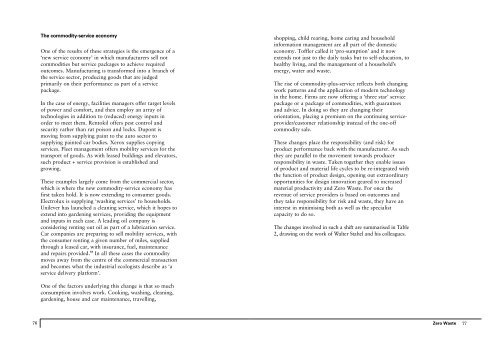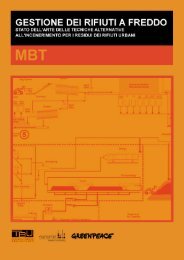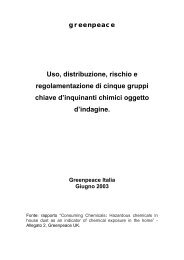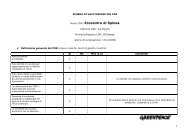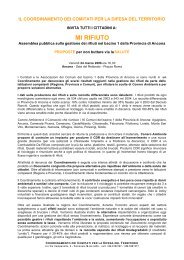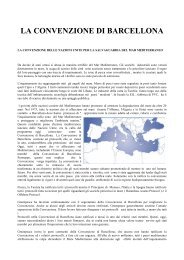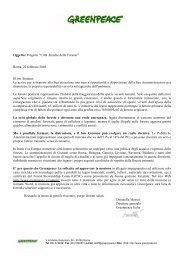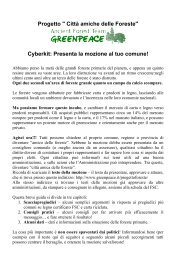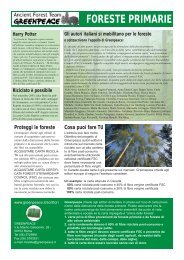Zero Waste by Robin Murray, Greenpeace Environmental Trust 2002
Zero Waste by Robin Murray, Greenpeace Environmental Trust 2002
Zero Waste by Robin Murray, Greenpeace Environmental Trust 2002
Create successful ePaper yourself
Turn your PDF publications into a flip-book with our unique Google optimized e-Paper software.
The commodity-service economy<br />
One of the results of these strategies is the emergence of a<br />
‘new service economy’ in which manufacturers sell not<br />
commodities but service packages to achieve required<br />
outcomes. Manufacturing is transformed into a branch of<br />
the service sector, producing goods that are judged<br />
primarily on their performance as part of a service<br />
package.<br />
In the case of energy, facilities managers offer target levels<br />
of power and comfort, and then employ an array of<br />
technologies in addition to (reduced) energy inputs in<br />
order to meet them. Rentokil offers pest control and<br />
security rather than rat poison and locks. Dupont is<br />
moving from supplying paint to the auto sector to<br />
supplying painted car bodies. Xerox supplies copying<br />
services. Fleet management offers mobility services for the<br />
transport of goods. As with leased buildings and elevators,<br />
such product + service provision is established and<br />
growing.<br />
These examples largely come from the commercial sector,<br />
which is where the new commodity-service economy has<br />
first taken hold. It is now extending to consumer goods.<br />
Electrolux is supplying ‘washing services’ to households.<br />
Unilever has launched a cleaning service, which it hopes to<br />
extend into gardening services, providing the equipment<br />
and inputs in each case. A leading oil company is<br />
considering renting out oil as part of a lubrication service.<br />
Car companies are preparing to sell mobility services, with<br />
the consumer renting a given number of miles, supplied<br />
through a leased car, with insurance, fuel, maintenance<br />
and repairs provided. 51 In all these cases the commodity<br />
moves away from the centre of the commercial transaction<br />
and becomes what the industrial ecologists describe as ‘a<br />
service delivery platform’.<br />
shopping, child rearing, home caring and household<br />
information management are all part of the domestic<br />
economy. Toffler called it ‘pro-sumption’ and it now<br />
extends not just to the daily tasks but to self-education, to<br />
healthy living, and the management of a household’s<br />
energy, water and waste.<br />
The rise of commodity-plus-service reflects both changing<br />
work patterns and the application of modern technology<br />
in the home. Firms are now offering a ‘three star’ service<br />
package or a package of commodities, with guarantees<br />
and advice. In doing so they are changing their<br />
orientation, placing a premium on the continuing serviceprovider/customer<br />
relationship instead of the one-off<br />
commodity sale.<br />
These changes place the responsibility (and risk) for<br />
product performance back with the manufacturer. As such<br />
they are parallel to the movement towards producer<br />
responsibility in waste. Taken together they enable issues<br />
of product and material life cycles to be re-integrated with<br />
the function of product design, opening out extraordinary<br />
opportunities for design innovation geared to increased<br />
material productivity and <strong>Zero</strong> <strong>Waste</strong>. For once the<br />
revenue of service providers is based on outcomes and<br />
they take responsibility for risk and waste, they have an<br />
interest in minimising both as well as the specialist<br />
capacity to do so.<br />
The changes involved in such a shift are summarised in Ta b l e<br />
2, drawing on the work of Walter Stahel and his colleagues.<br />
One of the factors underlying this change is that so much<br />
consumption involves work. Cooking, washing, cleaning,<br />
gardening, house and car maintenance, travelling,<br />
76<br />
<strong>Zero</strong> <strong>Waste</strong><br />
77


